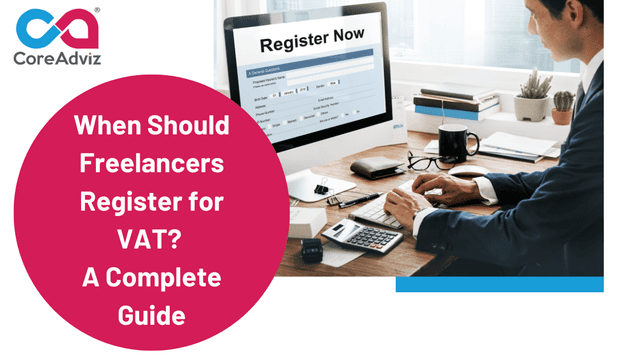
HomeBlog Essential Accounting Tips for New UK Business Owners
Essential Accounting Tips for New UK Business Owners
Kausik MukherjeeBusiness, Accounting
Starting a new business in the UK is an exciting venture. But managing company’s finances is not an easy task. Maintaining finances properly is essential for long-term success. Accounting might seem overwhelming at first, particularly if you don’t have a financial background. But a good system from the very beginning will save your time and money both. Here are some essential accounting tips every new UK business owner should know.
1. Separate Your Business and Personal Finances
Being a new business owner, it’s essential for everyone to set up a dedicated business bank account. Mixing personal and business transactions can lead to confusion. It may create several problems at tax time. Therefore keeping business and personal account separate is always recommended. It makes bookkeeping simple and gives you a clear picture of your business’s financial health.
2. Choose the Right Accounting Method
Most small businesses in the UK use either cash basis or accrual accounting. Cash basis accounting records income and expenses when money changes hands. But accrual accounting records income and expenses when they’re earned or incurred, regardless of when payment is made. Cash basis is easier for many small businesses. But most of the businesses follow accrual accounting. Accrual accounting gives more accurate picture of business finances.
3. Keep Accurate and Up-to-date Records
Good record-keeping is the foundation of effective accounting. Try to log all your business expenses on a regular basis. Besides maintaining daily accounting records in an organised way you must keep track of all receipts and invoices. Many businesses now using cloud accounting software which automates much of this process. Which in turn helps businesses track their cash flow, keep all records organized and allow them to access at any point of time from anywhere.
4. Understand Your Tax Obligations
Being a UK business owner you need to understand your tax obligations. Depending on your business structure (sole trader, partnership, or limited company), you may have different tax requirements. Register your business with HM Revenue & Customs (HMRC) as soon as you start trading and make a note of important deadlines for Self-Assessment, VAT returns and other filings.
5. Stay on Top of VAT
If your business turnover exceeds the VAT threshold (currently £85,000), you must register for VAT. Even if you’re below this threshold, registering voluntarily can sometimes be beneficial. Once registered, you’ll need to submit regular VAT returns to HMRC. Many accounting software platforms offer direct VAT submission features. If you want you can use that software to make the tax return process fast and simple. This is one of the easiest ways to submit tax return without facing any difficulties.
6. Track Your Expenses Carefully
Tracking business expenses accurately will help you to claim all allowable deductions. It will reduce your tax bill. Common deductible expenses include office supplies, travel, marketing costs and even a portion of your home expenses if you do work from home. Always keep receipts and document of each transaction clearly to claim all these deductible expenses.
7. Monitor Your Cash Flow
Cash flow refers to the money coming in and going out of the business. It is the lifeblood of any company. Poor cash flow is one of the most common reasons of businesses fail. Use accounting software or spread sheets to track income, expenses, and projected cash flow.
8. Use Accounting Software
Modern accounting software can save you countless hours and help you avoid costly mistakes. Many platforms offer features like automated invoicing, bank feeds, expense tracking and VAT reporting. Many businesses use those software to make their accounting task error free.
Conclusion
Sound accounting is crucial for every new UK business owner. By separating business finances, keeping accurate records, understanding tax obligations and using the right tools businesses can easily increase their ROI and reach their business goals.


